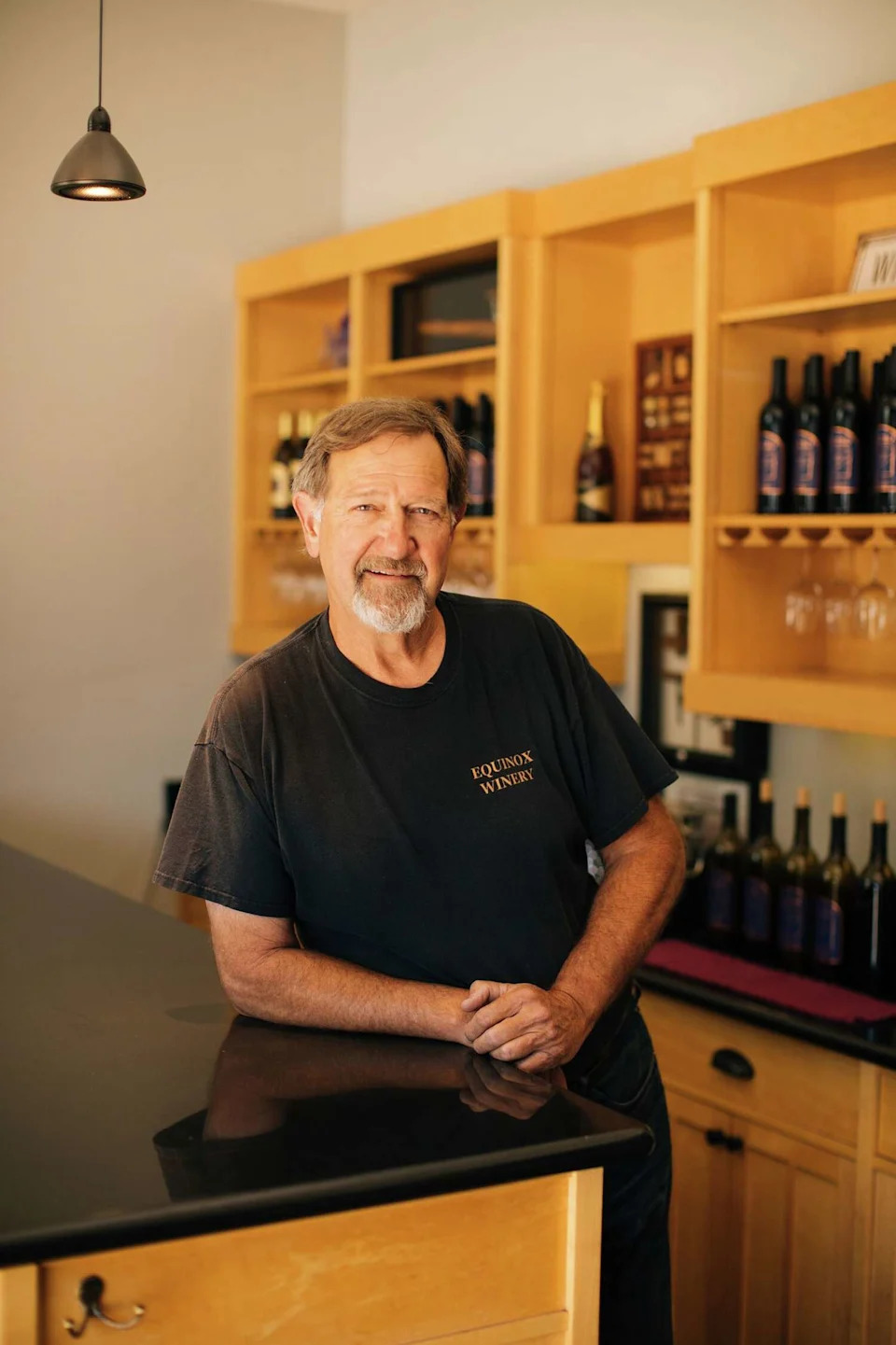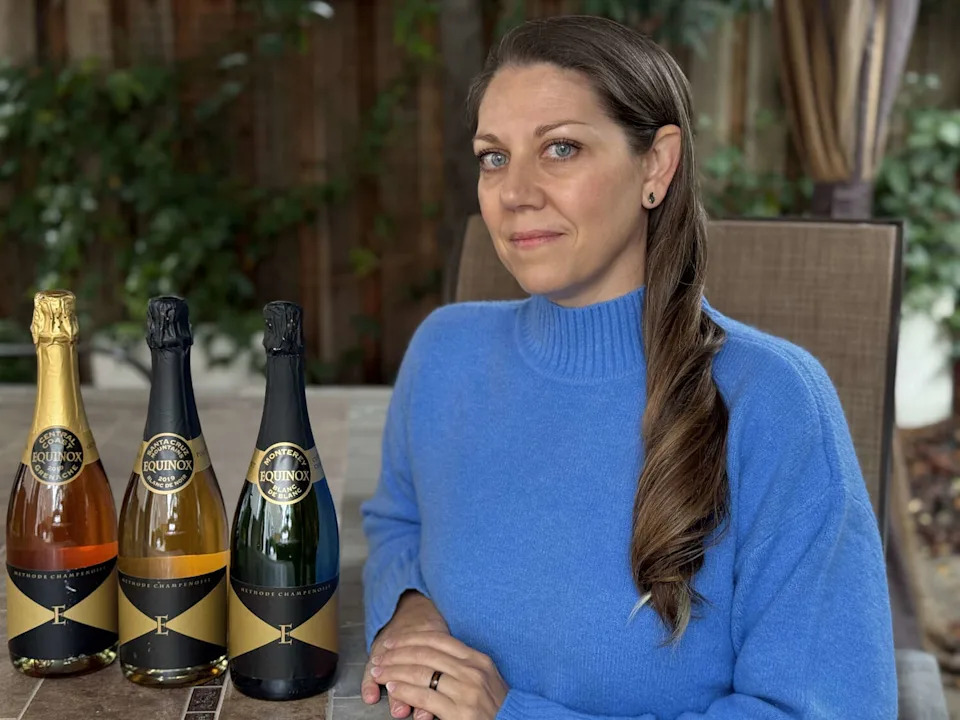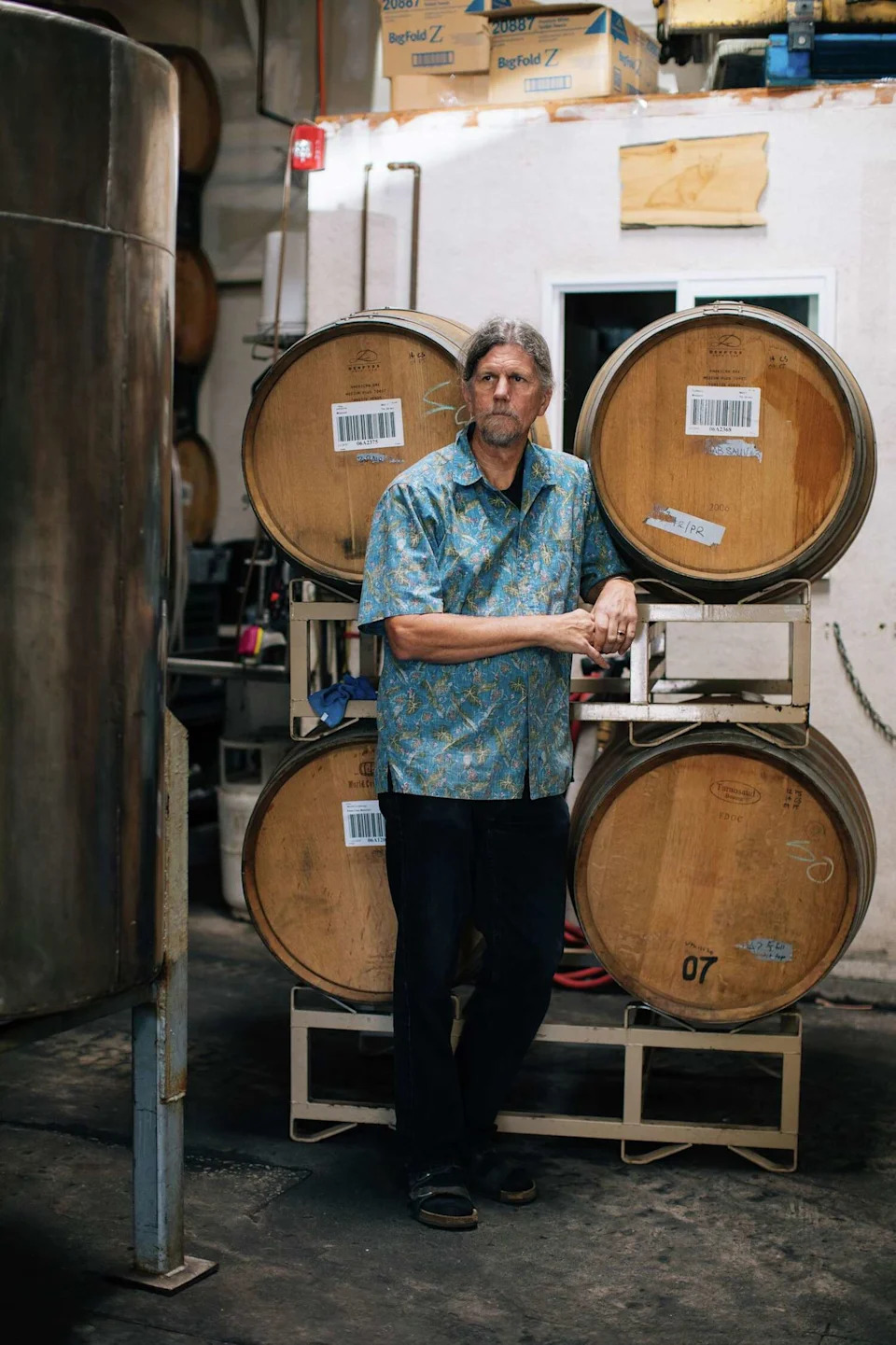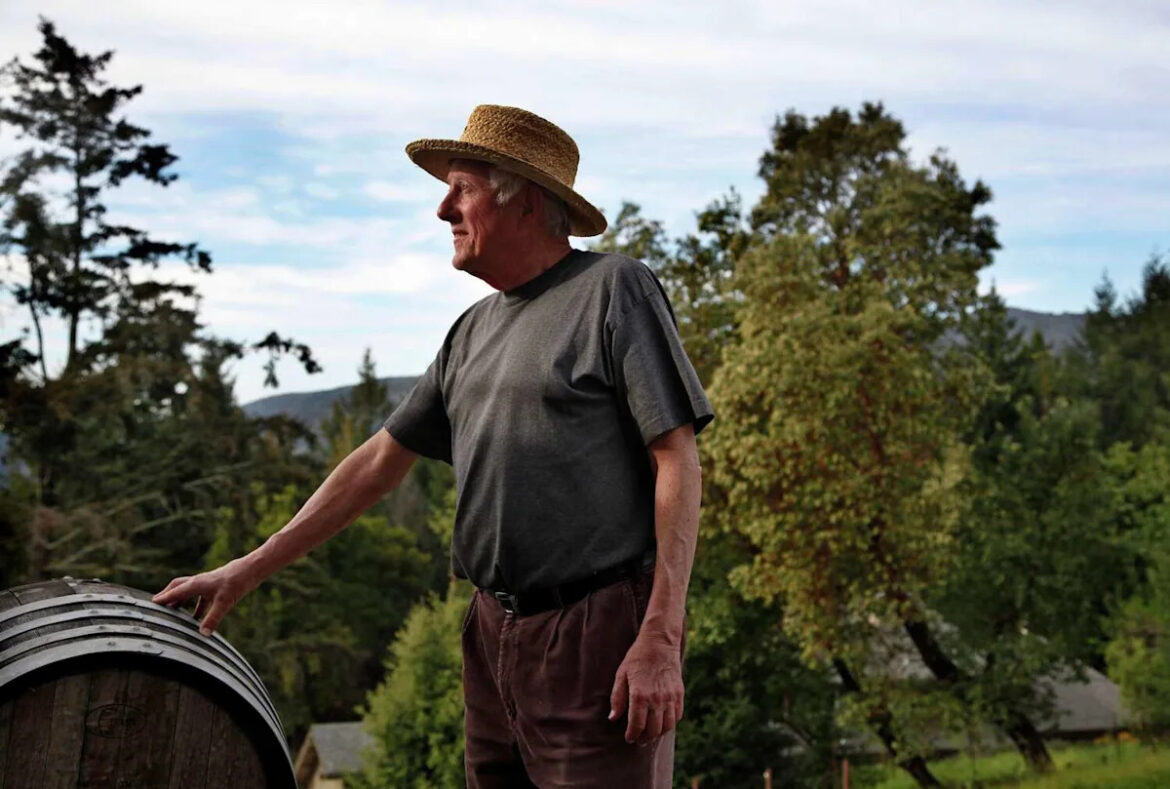The Santa Cruz Mountains wine scene is facing a succession crisis.
The region is populated almost entirely by small, independent, family wineries, and many owners are reaching retirement age now, all around the same time. (The Santa Cruz Mountains became an official AVA 43 years ago, roughly the span of a long winemaking career.) Several are either undergoing an ownership change or contemplating one. But it happens to be a historically bad time for the California wine industry, when it’s harder than ever for a retiring winemaker to pass their winery.
I wrote this week about one winemaker who’s confronting his lack of a succession plan boldly. Marty Mathis, owner of Kathryn Kennedy Winery in Saratoga, has no idea what’s going to happen to his business when he retires. But that hasn’t stopped him from betting big on what he describes as “quiet white wines” and planting new vineyards.
A few key players, finding themselves in transitional moments, have managed to figure out a way forward, though not without complications.

Equinox Winery founder Barry Jackson, seen at his former tasting room in 2017, died last year. His daughter has now decided to take over the business. (Mason Trinca/For the S.F. Chronicle)
When Equinox Cellars founder Barry Jackson, who had become the region’s top producer of Champagne-method sparkling wines, died in Sept. 2024, it wasn’t clear whether his winery would continue. His daughter, Ashley Jackson, had been trained with the hope of one day taking over the family business, but the timing was off: She’d just started a new job in Lodi, and she has two kids, along with a mortgage in Sacramento. Making things even more complicated, her dad, whose death was unexpected, hadn’t transferred the permits to her; administratively, she’d have to start the business from scratch.
The only sensible option, Jackson figured, was to shut Equinox down. As she was preparing to sell off all of its equipment – expensive, hard-to-procure machinery designed for sparkling wine – she realized “it would be a shame to not take this foundation that’s already been laid,” she said. “I’m already a sparkling winemaker.” When she unexpectedly got laid off, the decision became even more obvious.
On the one-year anniversary of her father’s death, Jackson officially committed to reviving Equinox. “I want to continue to honor what my dad established as an amazing sparkling wine,” she said.
It’s been a challenge. There’s the paperwork, which she described as “a nightmare,” and there’s no more tasting room, which Jackson closed when she was still deciding what to do with the business. With an excess of inventory – a problem for most California wineries right now – Jackson didn’t pick any grapes this year, but she plans to buy bulk wine in the spring and turn it into bubbly, spinning the results off into a more value-driven second brand.

Ashley Jackson is taking over Equinox Winery after her father’s death. (Courtesy Ashley Jackson)
Jackson has given herself a deadline of Sept. 2026 to see if the business is viable. “I need to be very pragmatic about it,” she said. “I jumped into this in debt. Right now I’m earning negative income.”
Further north, another Santa Cruz Mountains winery has quietly changed hands. Woodside Vineyards founder Bob Mullen is 99 years old, “way past having interest in managing the winery,” said Jerold O’Brien, owner of Silver Mountain Vineyards in Los Gatos. For the last couple of years, Mullen, who has no children, had been asking O’Brien – his friend since 1971 – to take over Woodside Vineyards. This summer, O’Brien finally agreed.
“The main reason I purchased it was because Bob Mullen was a very close friend of mine and I wanted him to be at peace,” O’Brien said. He wouldn’t disclose a purchase price, but said that the sum “was kind” of Mullen. “At the same time, he had no choice. There’s nobody buying wineries these days.”
Woodside Vineyards has now been subsumed into Silver Mountain Vineyards. O’Brien vacated the Woodside Vineyards winemaking facility in San Carlos, which had shared space with Auto Vino, a collectible car storage and events venue. The Woodside wines will likely change somewhat now that O’Brien’s team is making them according to Silver Mountain’s protocol, which notably eschews the use of pumps, a rarity for California wineries. (O’Brien said he prefers a gentler touch.)
A succession crisis could still be ahead for Silver Mountain and Woodside, however: O’Brien is in his 80s. He does have a vague plan for his winery’s future, at least: a board of trustees, whose chairman is his son. “When I’m gone, it’s their problem,” he said.
Business is tough, O’Brien added, and the Woodside acquisition has added a lot more work. “I’ll tell you why I’m still alive as a winery,” he said. About 15 years ago, he reoriented his business around producing wine for private labels, including lots of Silicon Valley residents with backyard vineyards.

Jeff Emery, owner of Santa Cruz Mountain Vineyard, in 2017. (Mason Trinca/For the S.F. Chronicle)
Jeff Emery, owner of the celebrated Santa Cruz Mountain Vineyard, is also trying to figure out his next move. He’d never imagined that he’d sell his winery, hoping instead for a protege to take it over. It would be an act of paying it forward: Emery was the longtime apprentice of Santa Cruz Mountain Vineyard’s founder, Ken Burnap, and when Burnap retired in 2004, “he gave me the brand for 25 years of service,” Emery said.
Emery has mentored numerous notable California winemakers, including Dennis Hoey of Odonata Winery; Cole Thomas and Ken Swegles of Madson Wines; and Ian Brand of I. Brand & Family Winery. But he doesn’t have an heir in place – and besides, isn’t quite ready to retire.
In the meantime, “because of the current state of alcohol sales in the world, we’ve cut way back,” Emery said. His sales to restaurants and stores have not reached their pre-pandemic levels, his tasting room traffic “wobbles” and he produced relatively little wine in 2025 compared with a typical vintage. But the Santa Cruz Mountain Vineyard wine club is still going strong.
“It’s always been a struggle,” Emery said. “Getting into the wine business, you don’t expect to make a normal living for the amount of work you do, but we love the work.”
This article originally published at The latest setback for this undersung California wine region: A succession crisis.


Dining and Cooking